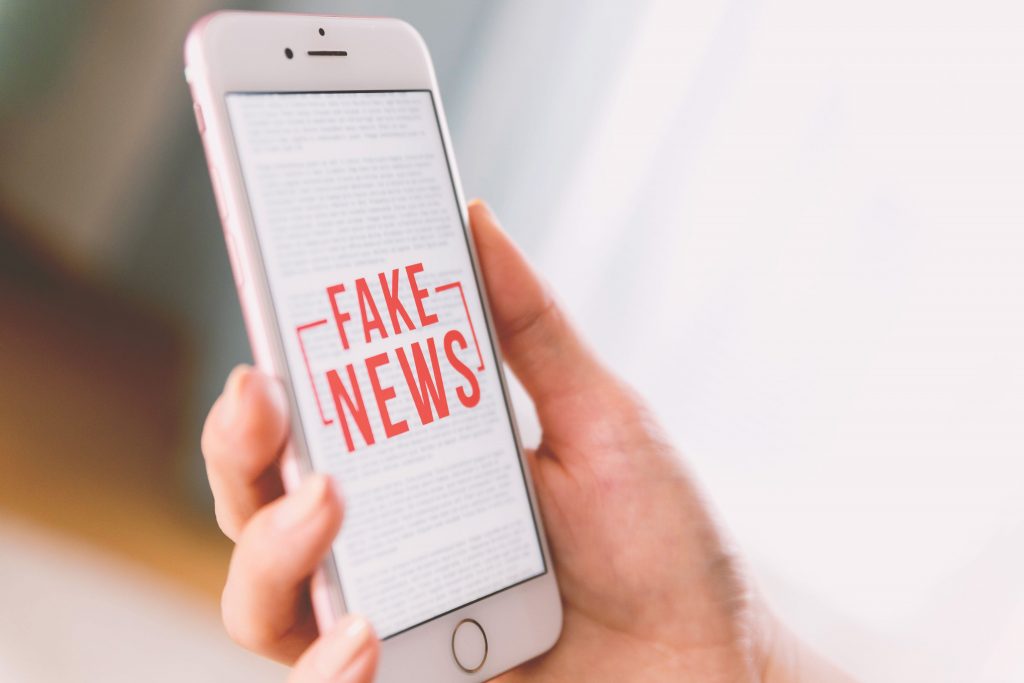Project Lead
Dr Yvonne Skipper, University of Glasgow
Co-investigators
Dr Daniel Jolley, Northumbria University
Supporting Partners
Joe Reddington, eQuality Time
Challenge
Fake news spreads six times quicker than the truth and is believed 75% of the time, meaning that it has the power to change our behaviour and impact our society. Project Real aimed to help young people develop the skills and confidence to recognize fake news.
Co-creating materials to help young people to recognize fake news
The project’s aim was to work with young people, social media influencers, teachers and academics to co-create materials to help young people to recognize fake news and to test these materials to ascertain their efficacy.
They recruited from three schools in Glasgow which drew a diverse group of young people. From these, they recruited around 18 young people and three teachers to assist in the co-creation. They also recruited five social media influencers to assist in the co-creation.

They worked as a group over six-weeks to co-create the intervention which included a set of Powerpoint slides for teachers to use which featured videos and a range of interactive activities including a starter, main activity and closing activities.
The course content included:
- Fake News: how to recognize fake news stories
- Fake Photos: why people might edit photos, the impact this could have on others and how to recognize fake photos
- Fake People: how to recognize fake people on social media accounts
- Fake Stories (Conspiracies): what a conspiracy is, how to recognise conspiracies and what impact they might have
- Fake Videos: why people might create fake videos, the impact this might have and how to recognise them
- Keeping it Real: Bringing it all together and designing materials to help other young people learn more about fake news
Insights
They trialed the intervention in the three schools. Around 420 young people aged from 11-13 participated in this trial.
Focus groups with young people showed that they found the intervention engaging and exciting and having completed Project Real they felt better able to recognize fake news:
“Yeah I think now we look more aware of how you can spot fake news. And like, it encourages me to like double-check or do a lot of research into what I’ve just read.”
“Yeah, it (Project Real) definitely made me more confident myself. Like I said before, I know what to do now. Like usually now, when I look at the news, I’ll like double check things to see if any other news, like website has wrote the same thing and like read beyond the headlines.”
Interviews with teachers also showed that they believed that the intervention was engaging, fit well with the curriculum and that they wanted to use it again:
“The videos from the Instagram influencers. That was really good to relate it to the real world, um especially when this is becoming a quite an aspiring career to get into.”
“It’s interesting, because young people just think that they know, everything, but then the examples that you had given, it was quite kind of thought provoking and things like that. So it was it was really useful.” Results showed that the project increased young people’s confidence and skills in recognizing fake news and was engaging for pupils. The materials are now freely available on the website Project Real and are being used in a variety of settings.
Future Directions
In future they will be working with Education Scotland, Higher Horizons and the National Teaching Forum to advertise the materials. They also intend to follow up the project, working with parents and pupils together to help parents learn more about fake news.
The workshops have shown that often parents’ understanding of fake news, especially photo and video editing is weaker than that of their children and working with parents and children together may help engage them in these skills and help parents and children learn together.
Resources
GitHub link: https://github.com/equalityTime/projectreal
Website: http://www.projectreal.co.uk/

